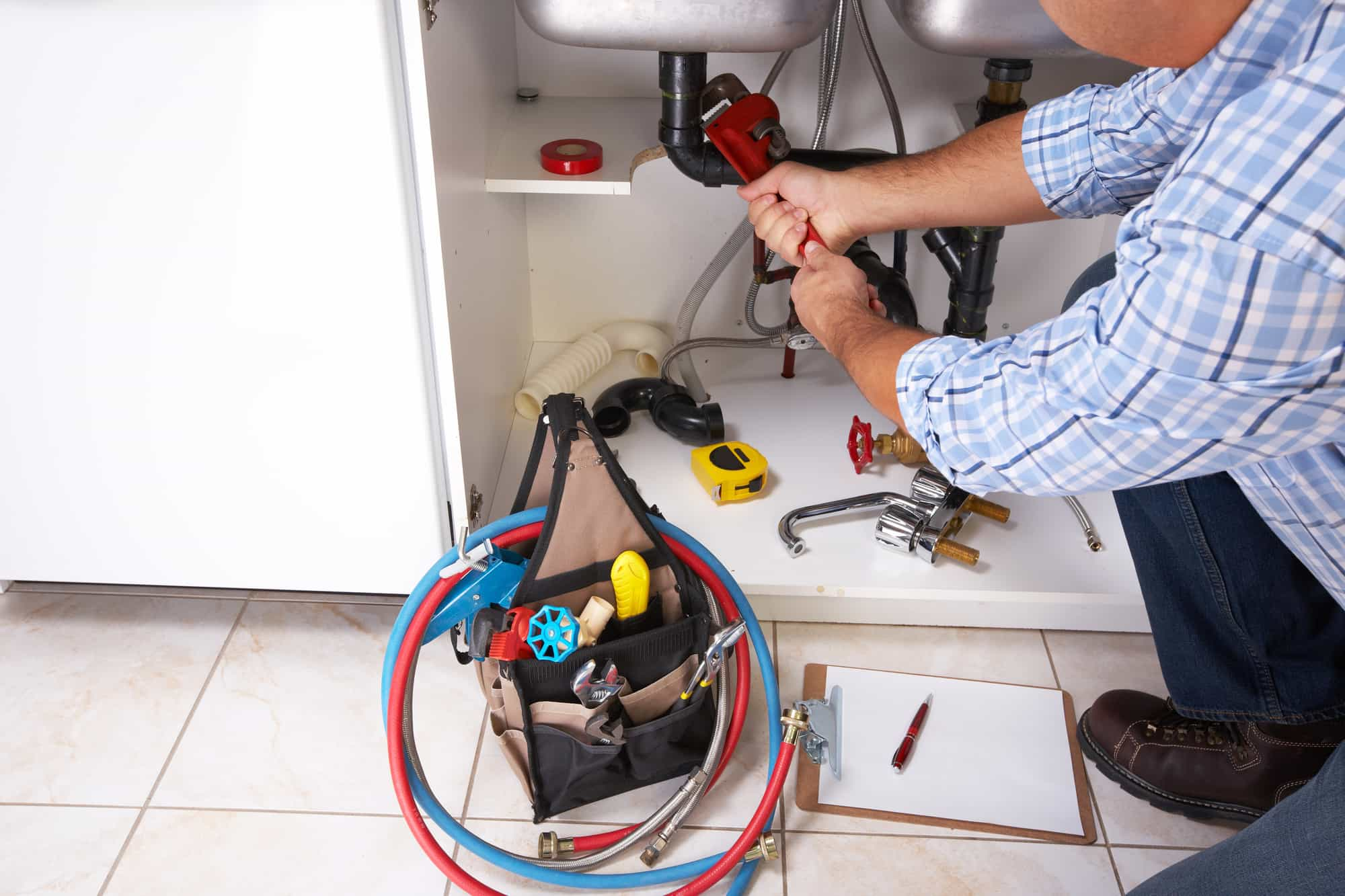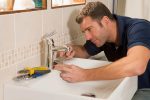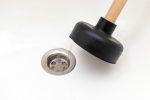How to maintain your home plumbing system like a pro
Routine Inspections
Routine inspections are critical to a well-maintained plumbing system. A professional plumber Kansas City, MO, can offer guidance on the crucial areas to monitor. To spot possible problems before they become more severe and require expensive repairs, experts advise examining them every few months. Examine exposed pipes for corrosion, leaks, or obstructions. Areas near water heaters, below toilets, and beneath sinks should receive special care since they are vulnerable to moisture buildup, which can cause damage. Pay attention to odd sounds, such as dripping or hissing, as they could point to hidden issues. Frequent inspections help you avoid significant headaches by identifying minor problems early.
Effective Drain Cleaning
It’s critical to maintain clear drains to avoid obstructions and plumbing crises. Using non-corrosive cleansers is standard household practice because they are better for the environment and your pipes. Baking soda and vinegar together produce a cheap, efficient drain cleaning. After a few minutes, pour the liquid down the drain and rinse it with hot water. Your drains will smell better and eliminate minor clogs with the help of this natural treatment.
Additionally, since fats and oils harden and clog pipes, refrain from pouring them down the drain. Instead, put these materials in the trash for disposal. Installing drain screens can capture and keep debris out of your pipes. By taking these precautions, you may significantly lower the chance of experiencing severe clogs, maintaining your plumbing system smoothly and efficiently.

Maintaining Optimal Water Pressure
Maintaining optimal water pressure can reduce stress on pipes and fixtures, increasing longevity. While excessive water pressure can harm your pipes and fixtures and cause leaks and bursts, low water pressure might indicate a blockage or a leak in the plumbing system. A water pressure gauge is a valuable instrument for monitoring water pressure levels. Generally, 40 to 60 psi (pounds per square inch) is the appropriate water pressure. If you see any noticeable differences, consider getting an evaluation from a qualified plumber. Keeping your water pressure at its ideal level may save future repairs and replacements by ensuring a constant flow and minimising wear and tear on your plumbing fixtures.
Preparing Plumbing for Winter
Winter can be harsh on plumbing systems, leading to frozen or burst pipes, which can be costly. Proper preparation can help you avoid these wintertime plumbing woes. To avoid freezing, insulate your pipes, especially those in unheated areas like basements, crawl spaces, or garages. Pipe insulation materials are widely available and can be installed easily without professional help. Disconnect exterior hoses and shut off the water supply to outdoor faucets.
Moreover, keep a trickle of water running through faucets during extreme cold spells to prevent the pipes from freezing. This simple measure can relieve pressure in the pipes and avert potential bursts. Preparing your plumbing for winter ensures a smooth and trouble-free season, preventing the hassle and expense of emergency repairs.
Creating an Emergency Plan
Because plumbing emergencies can happen without warning and result in severe damage, it is imperative to be prepared for them. In the case of a pipe rupture, knowing where to find and how to cut off your main water valve might help you avoid significant flood damage. Furthermore, keep the number of a reliable plumber close at hand. This minimises potential damage by enabling you to call a specialist promptly in case of an issue. Maintaining basic plumbing supplies like a pipe wrench, pipe tape, and plunger will help you handle little problems until help arrives. Preparing for emergencies lessens their toll on your house and finances by ensuring prompt, deliberate response.
Eco-Friendly Plumbing Upgrades
Consider upgrading to water-efficient fixtures and appliances, which benefit the environment and can significantly save your water bill. For instance, low-flow showerheads and dual-flush toilets reduce water usage without compromising performance. According to the EPA’s WaterSense program, such upgrades can save the average household up to 700 gallons of water per year. Energy-efficient appliances like washing machines and dishwashers are designed to use less water and energy, contributing to overall savings. Another excellent resource is the Department of Energy’s guide on efficient water heating systems. Opting for tankless or solar water heaters can provide long-term savings and reduce your carbon footprint. These eco-friendly choices conserve resources and contribute to a more sustainable home environment, benefiting you and the planet.
![[AD] ✨ Festive magic for local families in the heart of Guildford ✨
We had the loveliest evening exploring the @guildfordilluminate light trail at Guildford Castle
The trail takes around 30–40 mins
with cosy stops for hot chocolate and toasting marshmallows, it’s a gorgeous Christmas activity for Surrey families.
It’s on until 4th January and makes the perfect festive plan:
🛍️ Christmas shopping in town
✨ The light trail
🍽️ Finish with dinner in Guildford
If you’re looking for a magical, stress-free festive outing with the kids — this is one to add to your Christmas list
📍 Guildford Castle, Castle St, Guildford GU1 3SX
#GuildfordWithKids #SurreyFamilies #ChristmasInSurrey](https://suburban-mum.com/wp-content/uploads/2018/09/589257185_18566118850016840_4432952740767953046_n-180x320.jpg)
![[AD] We went to the newly opened Cha Sha Kingston a couple of weeks ago, and wow — taste bud adventure unlocked! The boys devoured the masala fries and chicken tikka rolls, while we couldn’t get enough of that epic kebab butter curry 😍🍛.
It’s amazing value for food this tasty (and everyone left happy and VERY full!).
Delicious food, vibrant vibes and incredible value — the perfect combo for your next meal.
📍Cha Sha Kingston
43 Surbiton Road, KT1 2HG
🌐 chasha.co.uk
Other Cha Sha locations in Birmingham, Ilford, Southampton and Wembkey
#ChaSha #ChaShaKingston #KingstonEats #FoodieFinds #UKFoodie #FoodReview #KingstonUponThames #FamilyEats #FamilyDining #FoodieKids](https://suburban-mum.com/wp-content/uploads/2016/02/574770541_18560351146016840_6855048070839528040_n-180x320.jpg)

![[AD] We’re a cricket-mad family, so we’re buzzing that @thehundred is back this August! 🏏🔥
To get ready, M tried out the official FREE Activity Pack — and it’s brilliant! 🙌
Packed with fun games, creative challenges and sporty tasks, it’s perfect for getting kids hyped whether you’re at home or on the go.
👉Download yours now (link in bio)
@londonspirit @ovalinvincibles #EveryMomentCounts #TheHundred
#EnglandCricket #CricketFamily #TheHundredCricket #LondonBloggers #Cricket #CricketIsLife #kidsfun](https://suburban-mum.com/wp-content/uploads/2022/11/505472555_18531279601016840_7092520074819907569_n-180x320.jpg)



![[AD - Press visit]
We enjoyed the glorious sunshine this weekend with a trip to Brighton. We went on the @brightoni360official which is right by the sea front.
The i360 pod take a slow journey up, allowing you to take in views across Brighton and the South Downs 450ft above ground. There’s a bar inside with drinks and snacks available to purchase and the experience lasts 25 minutes.
Afterwards, we headed to the open air roller rink for a roller skating session!
The roller rink is:
⭐ Suitable for over 5s
⭐ £6.50 if you have your own skates or £9.50 if you need to hire them
⭐ 45 minutes per session
Full details to visit the i360 + skating
📍 Brighton i360, Lower Kings Road, Brighton BN1 2LN
🚗 Parking nearby (we parked in the Regency Square Car park)
🎟️ Prices start from £25.40 for an adult and £16.90 for a child
🕐 Opening hours are currently Sun-Fri 10.30am-18.30pm and until 19.30pm on Saturdays
☕️ Bar inside the i360, cafe and gift shop
Book tickets here:
https://tickets.brightoni360.co.uk/tickets/?_ga=2.195305772.1869001490.1689671753-1757164059.1689671753/#events?eventid=157](https://suburban-mum.com/wp-content/uploads/2015/04/417980235_313576471048632_3682382982231216432_n.jpg)

![[AD] ***Summer of fun at Barracudas Activity Camps!****
There is plenty for kids to do at @barracudas_activity_day_camps
From Tennis, Archery, Swimming, Motor Sports and more you can be sure that there will be something for kids aged 4.5-14. ⚽🏈🥅🎾🏓🏎️🏹🏊♂️🏉
You can book on a day by day basis - so it can fit in with any other days out/activities you have planned and there are early drop off and late pickup options available. Barracudas are also Ofsted registered so you can use your Childcare Vouchers too.
⭐⭐⭐Get £20 off a week or £4 off a day using my discount code: MARIA20⭐⭐⭐
#BarracudasActivityDayCamp #BarracudasActivityCamp #BarracudaAmbassadors #SummerHolidays #SchoolHolidays #Summer2023 #SummerCamp #DayCare #Camp #KidsCamp #surreymummy #surreymums #SummerOfFun #ActivityCamps #HolidayCamps #Childcare #SchoolHolidays #schoolholidaycamps](https://suburban-mum.com/wp-content/uploads/2024/07/353583570_625625966167953_545896259645102575_n.jpg)



![[AD] We have some super exciting news...we have been chosen to be Laser Quest Ambassadors, and the boys are over the moon!
We are really lucky that our local Laser Quest (@laserquestkingston) is just around the corner from us. It means we can pop in of a weekend or anytime during the school holidays, and with summer just around the corner, I know Laser Quest will be one of our go-to places for some family fun.
As well as games of Laser Quest, there are also VR experiences and arcade amusements too. To find out a bit more about how Laser Quest works, you can read my blog post: https://www.suburban-mum.com/laser-quest-kingston/ (clickable link in bio)
Don't forget to keep an eye out for our Laser Quest posts - I'm going to be giving away two family passes to use at Laserquest Kingston!
If you can't wait and want to head down to Laser Quest to try it out, use the code SUMMER30 for 30% off your booking. The code is valid from now until the end of August 2023 and can be used on Laser Quest games and birthday party bookings.
#LaserquestAmbassador #Laserquest #LaserquestKingston #ActivitiesForKids #FamilyFun #DaysOutWithKids #Lasertag #LaserquestVR #Kingston #ThingsToDoInKingston #SurreyFamilyDaysOut #ThingsToDoWithKids #RainyDayFun #SurreyMummy #SurreyLife #LifeWithKids #LifeWithBoys #familyfunday](https://suburban-mum.com/wp-content/uploads/2015/04/353230107_797358078406942_2405522556733455165_n.jpg)

![[AD] The sun has finally made an appearance and the boys have been making the most of it by spending it
in the garden.
They’re go-to is always football and they’ve been trying to improve their aim and accuracy with the new Messi Foldable Footlball goal from the #MessiTrainingSystem range.
I love the fact the goal is foldable, making it easy to store away when not in use. It is also lightweight so you can effortlessly pack it up and take it to the park or to a friend’s house.
The Messi Foldable Football Goal retails at £36 and can be purchased from @argos
You can read my full review here: https://www.suburban-mum.com/messi-foldable-football-goal/
#TrainLikeMessi #FoldableFootballGoal #FootballSkills #OutdoorFun #LionelMessi #LeoMessi #FootballAtHome #OutdoorKids #JustGetOutside #OutdoorsAndFree #ScreenFreeKids #WhateverTheWeatherKids @flair_gp](https://suburban-mum.com/wp-content/uploads/2015/04/341194882_615024710178056_41977149395989448_n.jpg)

![[AD] We are absolutely thrilled to announce that we are Barracuda Ambassadors again this year.
With Easter just around the corner, the boys were sent the @barracudas_activity_day_camps new camp kit in preparation for the school holidays.
There’s a wide range of activities for kids aged 4.5 - 14 including Tennis, Archery, Basketball, Arts & Crafts and more.
If you like the sound of Barracudas, find out more over on their website. You can also save £20 a week or £4 a day, using my discount code: MARIA20](https://suburban-mum.com/wp-content/uploads/2024/07/336812306_765234558514317_685553691647241974_n.jpg)





